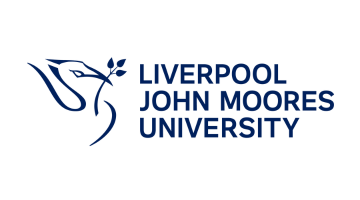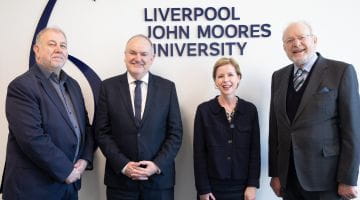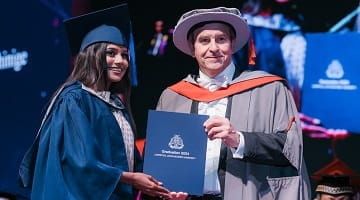About this course
Learn how to lead and integrate a team of multi-disciplinary professionals on LJMU's Construction Project Management Masters.
- This Programme is available as a 180 and a 240 credit route including a Group Project and Dissertation
- Study on this programme accredited by the Royal Institution of Chartered Surveyors (RICS) and Chartered Institute of Building (CIOB)
- Benefit from the development of professional and transferable skills required in industry
- Choose the part-time, day release study option if you are already in employment
- Look forward to direct entrance onto the RICS APC professional training programme and CIOB PDP if you are employed
This programme aims to provide a stimulating and challenging curriculum which produces self-reliant, versatile, enterprising and competent construction project managers. It will enable you to build your knowledge, skills and understanding to become an independent learner. You will even be able to tailor your programme of study to your personal background, interests and career aspirations.
The quality of this programme and the Department is recognised by the Chartered Institute of Building with Accredited Centre status, and by the Royal Institution of Chartered Surveyors as a Partnering Establishment. The degree has a high standing both academically and professionally.
The programme will increase your exposure to the current and emerging theories and practice of project management. It will encourage a risk management approach to problem solving, provide opportunities for collaborative and student-centred study and offer clear career development opportunities.
The course is always well received by students who commend the applied use of theory through software applications in the workplace.
Course modules
Discover the building blocks of your programme
Further guidance on modules
Modules are designated core or optional in accordance with professional body requirements, as applicable, and LJMU’s Academic Framework Regulations. Whilst you are required to study core modules, optional modules provide you with an element of choice. Their availability may vary and will be subject to meeting minimum student numbers.
Where changes to modules are necessary these will be communicated as appropriate.
Core modules
Your Learning Experience
An insight into teaching on your course
Teaching methods
You will learn through a mixture of lectures, tutorials, seminars, projects and field study visits.
Applied learning
Close partnerships with industry and practice ensure the course and our graduates are responsive to the changing needs of industry, government, local communities and professional practice.
How learning is monitored on your programme
To cater for the wide-ranging content of our courses and the varied learning preferences of our students, we offer a range of assessment methods on each programme.
Assessment methods on this programme include: group and individual presentations, written reports, a formal exam and a dissertation.
Where you will study
This programme is based in the City Campus. Besides well-equipped workshops, we have: a structural testing laboratory, a concrete laboratory, a radio frequency and microwave laboratory, a highways research laboratory, an industrial chemistry laboratory, a soil mechanics laboratory, hydraulics laboratory, surveying laboratory, light structure and materials laboratory, building information modelling (BIM) software and expertise and smart homes.
Career paths
Further your career prospects
LJMU has an excellent employability record with 96% (HESA 2018) of our postgraduates in work or further study six months after graduation. Our applied learning techniques and strong industry connections ensure our students are fully prepared for the workplace on graduation and understand how to apply their knowledge in a real world context.
There are many employment options available to you after you graduate. For example you could work for a main contractor on a commercial development such as Liverpool One, or you could work for a Project Management Consultancy and represent the Client such as a NHS trust for a new hospital like the Royal Liverpool Hospital.
Tuition fees and funding
- Part-time per credit:
- £54.65
Fees
The fees quoted above cover registration, tuition, supervision, assessment and examinations as well as library membership and student IT support with access to printed, multimedia and digital resources including programme-appropriate software and on campus wifi.
Financial Support
There are many ways to fund postgraduate study for home and international students. From loans to International Scholarships and subject-specific funding, you’ll find all of the information you need on our specialist postgraduate funding pages. The University offers a range of financial support for students. You'll find all the information you need on our specialist financial support pages including details of the Student Support Fund and other activities to support with the cost of living.
Additional Costs
In addition to fees, students should also keep in mind the cost of:
- Accommodation
- Travel costs and field trips unless paid for by LJMU
- Stationery, IT equipment, professional body membership and graduation gown hire
Entry requirements
You will need:
Qualification requirements
How to apply
Securing your place at LJMU
To apply for this programme, you are required to complete an LJMU online application form. You will need to provide details of previous qualifications and a personal statement outlining why you wish to study this programme.
You need to demonstrate that you have a sufficient level of knowledge to embark on the programme and to complete it within the time limits. You should provide evidence, at the interview stage, of your learning capabilities and commitment to a postgraduate programme of study.
Applications from non-standard applicants are welcomed. In exceptional circumstances applications by mature healthcare practitioners without sufficient qualifications will be considered.
Your university life
From accommodation and academic support to clubs and societies. Find out what LJMU has to offer.
Related Links
Talk to our students
Connect with a current LJMU student for advice and guidance on university life, courses and more.
See what our students are saying
At LJMU we want you to know you’re making the right choice by studying with us. You can see what our students are saying about their experience with us through their reviews on the following websites:
Related Links
News and views
Browse through the latest news and stories from the university
The University reserves the right to withdraw or make alterations to a course and facilities if necessary; this may be because such changes are deemed to be beneficial to students, are minor in nature and unlikely to impact negatively upon students or become necessary due to circumstances beyond the control of the University. Where this does happen, the University operates a policy of consultation, advice and support to all enrolled students affected by the proposed change to their course or module.




























